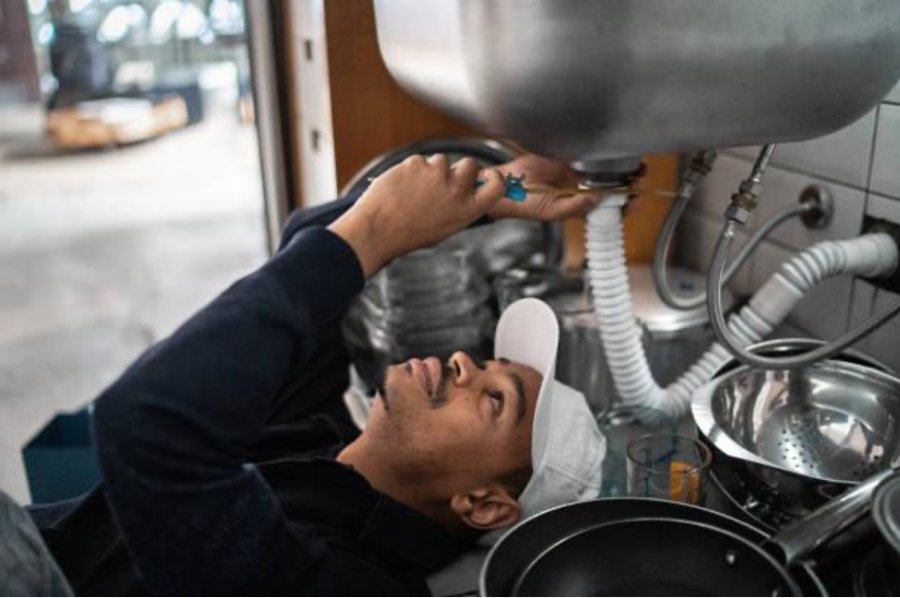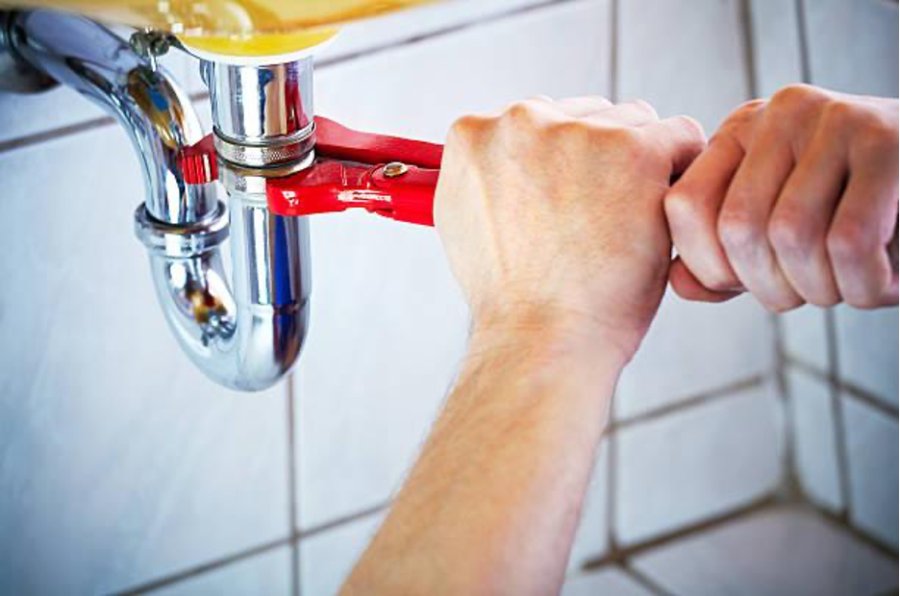Handling Plumbing Emergencies

Plumbing emergencies can strike at any time and can cause significant damage to your home if not handled promptly and effectively. From burst pipes and clogged drains to water heater malfunctions and faucet leaks, these unexpected situations can be stressful and overwhelming. However, with the proper knowledge and preparedness, you can minimize the impact of a plumbing emergency and protect your property.
This article aims to guide how to handle plumbing emergencies, including understanding common issues, taking immediate action, contacting professional help, and implementing preventive measures.
Understanding the Nature of Plumbing Emergencies
Plumbing emergencies can strike anytime, leaving you feeling like you're swimming in a sea of panic. From burst pipes to clogged drains, these emergencies can cause significant damage to your home if not handled swiftly. Visit https://www.forbes.com/home-improvement/plumbing/how-to-clear-clogged-drain/ to learn more about clearing clogged drains.
Understanding the nature of plumbing emergencies is the first step in ensuring you can manage them effectively when they occur. When it comes to plumbing emergencies, time is of the essence. Ignoring or delaying action can lead to disastrous consequences such as flooding, water damage, and mold growth. So, when faced with a plumbing emergency, it's crucial to act promptly to minimize the potential damage and restore order to your plumbing system.
Common plumbing emergencies include:
- Burst or Leaking Pipes
- Clogged Drains and Toilets
- Water Heater Malfunctions
- Faucet and Fixture Leaks
Plumbing emergencies can come in various shapes and sizes, but some are more common. Burst or leaking pipes can flood your home faster than you can say "plumber." Clogged drains and toilets can turn your bathroom into a disaster zone you'd rather avoid.
Water heater malfunctions can leave you taking cold showers like it's some polar plunge challenge, and faucet leaks can waste water and money. Knowing these common plumbing emergencies will help you better prepare for when they strike.
However, before you tackle that plumbing emergency head-on, it's essential to take some safety precautions.
- Shutting off the water supply to the affected area is crucial to prevent further flooding and damage.
- Turning off the electricity in your home can help you avoid any electrical hazards. Here are the common types of electrical hazards.
- Don't forget your protective gear and tools because you never know when you might need to channel your inner handy person.
Contacting Professional Plumbers

Research and Select a Trustworthy Plumber
When facing a plumbing emergency, it's crucial to contact a professional plumber who can quickly and efficiently address the issue. Take the time to research and choose a plumber with a solid reputation and positive customer reviews. Ask for recommendations from friends, family, and neighbors with similar plumbing problems.
Relay Important Information
When contacting a plumber, please provide them with all the necessary details about the emergency. Be prepared to explain the problem, its severity, and any signs you've noticed. Clear communication will help the plumber assess the situation accurately and arrive fully prepared to tackle the issue. Remember, giving them the correct information saves both time and money.
Available Emergency Plumbing Services
Many professional plumbers offer emergency services 24/7, so don't hesitate to call them at any hour. They understand that plumbing disasters don't abide by a convenient schedule. Be sure to ask about their emergency response time and any additional charges that may apply. Time may be of the essence during a plumbing emergency, so it's critical to know when help will arrive.
Dealing with Plumbing Emergencies: Fast and Effective Tips
1. Assess and Document the Damage
If a plumbing emergency has caused water damage in your home, it's crucial to assess and document the extent of the destruction. Take photos and make a thorough list of the affected areas and belongings. This documentation will be essential for insurance claims and potential legal matters. Remember, a picture is worth a thousand words, especially regarding water damage.
2. Dry and Salvage Your Possessions
After assessing the damage, focus on drying out the affected areas and salvaging any possessions that can be saved. Use fans, dehumidifiers, and open windows to facilitate the drying process. However, be cautious of electrical hazards and remember to prioritize your safety. Salvaging items quickly can minimize losses and potentially save sentimental belongings.
3. Get Professional Water Damage Restoration
In cases of severe water damage, it's wise to call in professional water damage restoration services. These emergency plumbers have the tools, equipment, and expertise to handle the situation effectively. Investing in their services can help prevent further damage and ensure a thorough cleanup and restoration process.
Remember to stay calm, contact a trustworthy plumber, and provide them with all the relevant details. Take preventive measures to avoid future emergencies, address minor issues promptly, and seek professional help when dealing with water damage.
Preventing and Preparing for Plumbing Emergencies at Home
Regular Maintenance and Inspections
One of the best ways to avoid plumbing emergencies is to schedule regular maintenance and inspections. A professional plumber can identify potential issues before they become full-blown disasters. Don't wait for a crisis to strike—invest in preventive care to save yourself from future headaches and unexpected expenses.
Proper Usage and Disposal Practices
To keep your pipes in good shape, it's essential to use them properly. Avoid flushing anything other than toilet paper down the toilet and dispose of cooking grease in the trash instead of pouring it down the sink. Educate your household members about the dos and don'ts of plumbing to prevent clogs and other mishaps.
Addressing Minor Issues Promptly
It's tempting to ignore minor plumbing issues, but doing so can lead to more significant problems. That dripping faucet or slow drain may seem inconsequential, but they can escalate into substantial emergencies if left unattended. Don't procrastinate over those minor issues in the bud to save yourself from major headaches later.
Conclusion
Plumbing emergencies can be challenging, but having a plan and acting swiftly can make all the difference. By understanding common issues, taking immediate safety precautions, and knowing when to call professional plumbers, you can effectively address plumbing emergencies and mitigate further damage.
Despite how overwhelming a plumbing emergency can be, with the right approach, you can navigate through the chaos. Following the tips outlined in this article will better equip you to handle plumbing emergencies and minimize the stress they bring.
More to Read:
Previous Posts:




